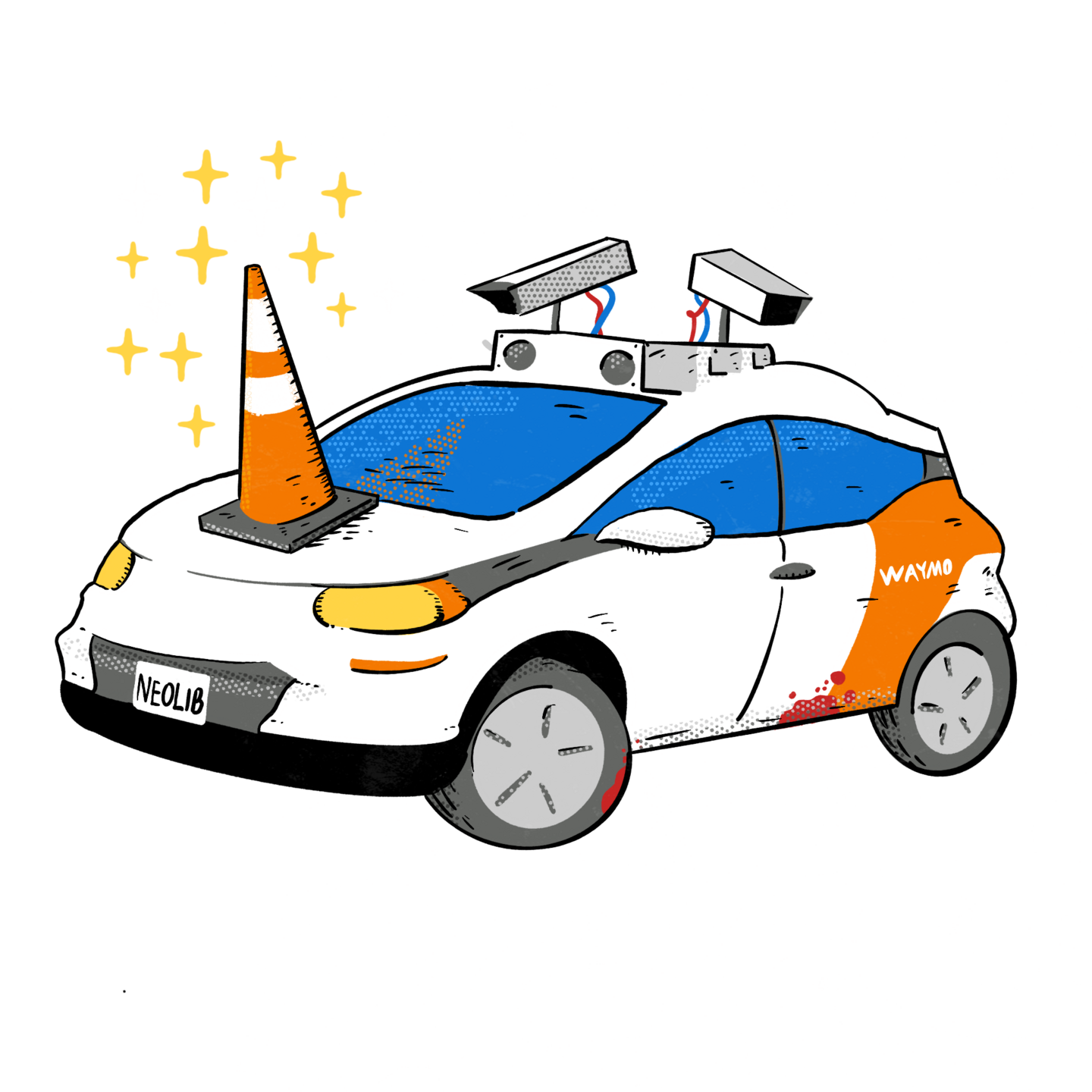
Mission Local – Driverless cars won’t be ticketed in last-minute about-face for CA state bill
Editors note: California Assemblymember Phil Ting simply wimped out on this one.
See original article by Anne Li and Joe Eskenazi at Mission Local
Earlier plan to give driverless cars tickets deemed ‘not operationally viable’ by state judicial council
A California bill that would have allowed for self-driving cars to be ticketed for traffic violations was amended just days before the year’s legislative session is scheduled to adjourn.
Driverless car companies like Waymo and Cruise still will not be ticketed under the amended bill. Rather, law-enforcement agencies will report instances of autonomous vehicles’ “non-compliance” to the Department of Motor Vehicles.
That bill’s author, Assemblymember Phil Ting, explains that giving billion-dollar companies tickets would’ve just become a cost of doing business — and was also legally unworkable. He said he altered his bill after consultation with the Judicial Council, which runs state courts, and the California Highway Patrol.
Autonomous vehicle critics, however, bemoaned that the companies continue to be treated differently, and more leniently, than human drivers.
Assembly Bill 1777, introduced by Ting earlier this year, would have mandated the citation of autonomous vehicle manufacturers for traffic violations committed by their cars when a driver is not present, or when a driver is present but the car’s autonomous technology is engaged.
The bill was meant to close a loophole that required tickets to be presented to a human driver, thereby preventing the citation of self-driving cars for traffic violations.
But that requirement was cut in an amendment made last Friday, Aug. 23. The amended bill requires only that such violations result in a “notice of autonomous vehicle noncompliance” being sent to the Department of Motor Vehicles.
With the deadline for this legislative session to advance bills coming on Saturday, Aug. 31, the changes to AB 1777 would appear to be baked in.
“I bet everyday Californians wish that when they made a mistake driving they got a courtesy note instead of an expensive ticket,” said Peter Finn, the Western Region vice president of the International Brotherhood of Teamsters.
The Teamsters, which represent commercial drivers, are the natural enemies of autonomous vehicle technology.
“It’s crazy to even consider a law that advantages robots and their corporate owners over everyday working people,” Finn said.
Ting, however, pushed back on the Teamsters’ contentions. He noted that an Aug. 2 letter from the Judicial Council described his earlier plan to allow autonomous vehicles to be ticketed as “not operationally viable,” and opposed it. A system meant to discipline individual drivers, wrote the council, was ill-suited to apply to manufacturers of autonomous vehicles.
“Drivers license suspension and collection activities that typically rely on wage garnishment, tax intercepts, and bank levies, are not clearly applicable to manufacturers,” reads the letter. “As the court process is not an effective way to alert manufacturers, these vehicles would continue to pose a risk to public safety for longer than would be necessary if these issues were addressed via … an administrative process through the DMV.”
Human drivers, Ting says, “don’t want points on our record. But if you give Waymo a ticket, there’s no ‘You get three points and you’re out of business.’”
Under his bill, Ting continues, “Police can stop the autonomous vehicle, cite it with a ‘notice of non-compliance,’ and it goes directly to the DMV. The DMV needs to get the data about what was going wrong and what was happening on the streets. I am not doing this so I can fine the companies. I’m doing this so I can make the road safer.”
Board President Aaron Peskin, who has been one of San Francisco’s foremost critics of autonomous vehicle technology — running point on what he calls “legislative guerilla warfare” — saw silver linings in the alteration of the bill.
“Given the outsize power of the AI/AV industry in Sacramento, while this is disappointing and it still is kind of crazy insofar as machines will be treated better than people, it’s still a positive step in the right direction,” he said.
“It still, in essence, means that the state will be able to collect bits of data that, right now, the industry is keeping secret. So even the report to the DMV is a step in the right direction from this industry that doesn’t want anybody to report anything so that they can claim that their technology is flawless.”
See original article by Anne Li and Joe Eskenazi at Mission Local
